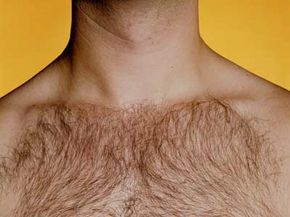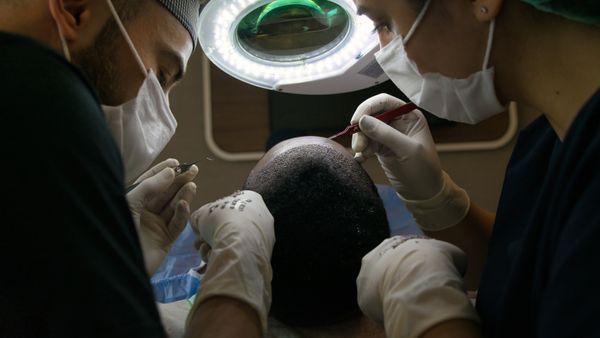Grooming your body hair can seem like cutting the grass in the summertime. You devote an afternoon to the chore, and the next thing you know, the grass has shot up and you're hauling the lawn mower outside again. When landscaping your body, there areeyebrowsto tweeze, mustaches to trim and coiffures to condition daily. The average man spends more than a month out of his lifetime shaving his beard [source:The Economist]. Women hunch over their legs with razor in hand for hundreds of hours to meticulously strip away of thousands of unwanted hairs.
While the hair we see on the outside of our bodies may appear to be actively growing, the real action takes place below the surface of our skin, orepidermis。Cellsinside of our hair follicles divide and multiply, and as space fills up inside of the follicle, it pushes older cells out. After those older cells harden and exit the follicle, they form the hair shaft. The shaft is mostly comprised of dead tissue and a protein calledkeratin。
Advertisement
但人体的头发不会长efinitely -- if that were the case, you'd probably look a lot more like Cousin Itt from "The Addams Family." Instead, individual hairs go through active and resting phases. The process of cellular division that increases the length of the hair shaft is the active, oranagen, phase. The anagen phase continues for a period depending on the type of body hair, then slows down for the resting, ortelogen, phase. Since your hair is made up of dead matter, it falls off during the telogen phase. These varying durations of growth explain why the hair on your head grows longer than your arm hair. Your body hair's anagen phase usually lasts only a few months, while your scalp's phase lasts a few years.
Differences in growth phases, hair follicle size and shaft density also define the different types of human body hair. In the womb, fetuses are covered in tiny hairs calledlanugo。Shortly after birth, babies growvellus, or fine, unpigmented hairs, across the body. When puberty hits, vellus hairs give way to coarserterminalhairs in places such as the underarms and genitals. The longer, thicker hairs on your scalp, eyebrows and eyelashes are also terminal.
Tally those body hair categories on the average person, and it adds up to around 5 million individual hairs. Wouldn't life be simpler if you were just bare everywhere?
Advertisement





